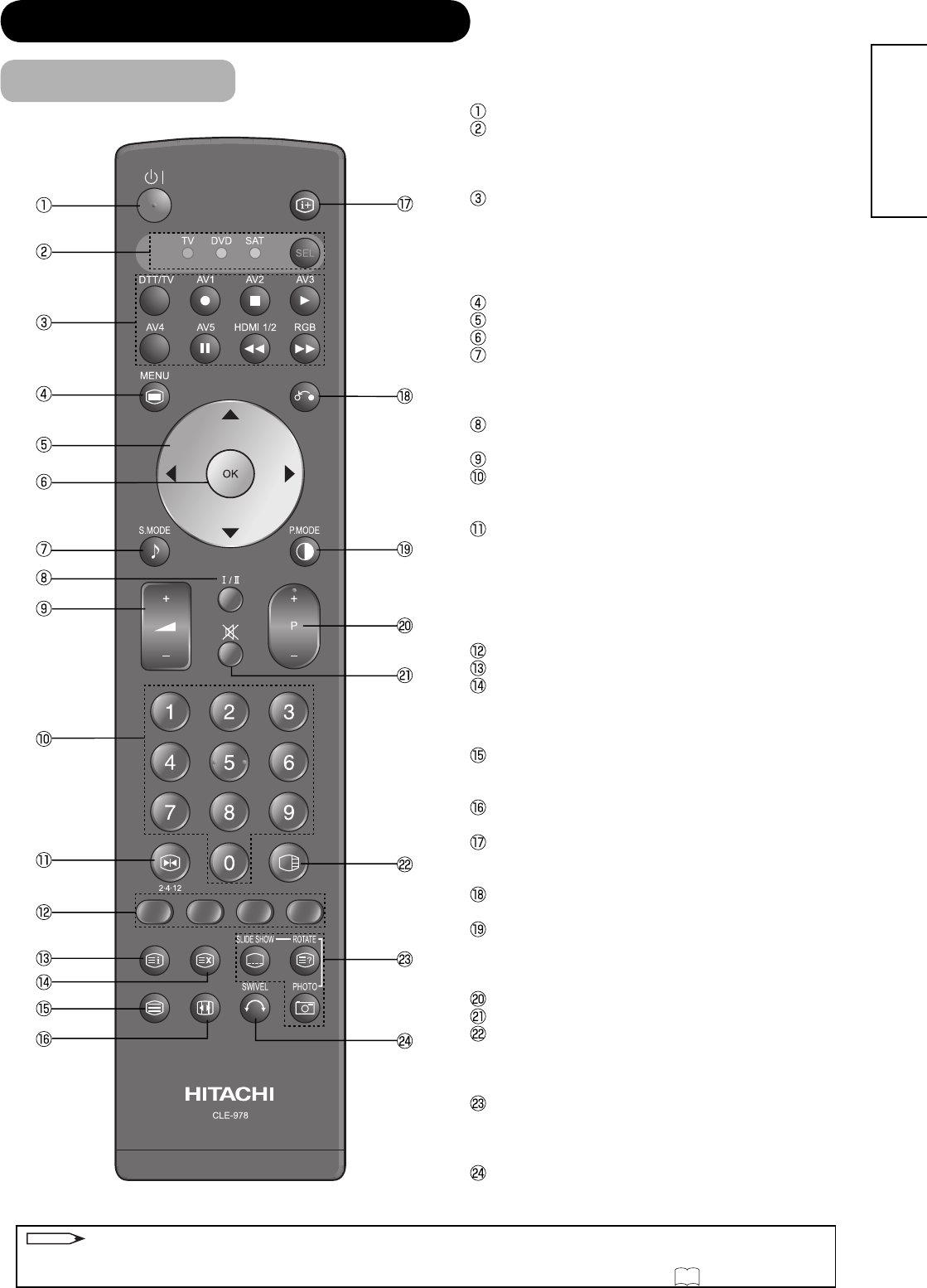
11
ENGLISH
COMPONENT NAMES (Continued)
Remote Control
Sub Power
Function Select (TV/DVD/SAT)
Press this button to select function mode
indicating LED lamp.
Normally, select “
TV”.
Input Select/DVD Control/Photo Input Control
Press this button to change input mode.
In addition, you can use these buttons while
operating the selected brand of DVD player or
Photo Input function. (DTT input: 9700 models
only)
Menu
Cursor
OK
Sound Mode
Sound mode can be changed each time pressed
in the following sequence. Movie→Music→
Speech→Favourite
CHI/II
This is exclusively for TV audio A2/NICAM mode.
Volume Up/Down
Programme Select
Press these buttons to select a TV program
directly.
Freeze/Multi Mode [Hold]
Press this button to change the picture to freeze
mode. Press it again to return to normal picture.
In addition, during multi-picture mode, each time
press this button, the picture is changed to 2, 4,
and 12 multi mode. (Also, it holds the page in
text mode.)
[Colour (Red, Green, Yellow, Blue)]
[Index]
Time [Cancel]
Pressing this button can indicate the time by On-
Screen display when receiving a TV programme
on the screen.
TV/Text [TV
Ù
Text]
This switches between the TV mode and the
Teletext mode.
Zoom [Text
Ù
TV+Text]
Press this button to change picture size.
Recall
Pressing this button shows the input signal
status.
Return
You can use this to return to the previous menu.
Picture Mode
Picture mode can be changed each time pressed
in the following sequence. Dynamic→Natural→
Cinema
Channel Up/Down
Mute
Multi Picture
Press this button to change the picture to multi-
picture mode. Press it again to return to normal
picture.
Photo Input (Photo/Rotate/Slide Show)
These buttons are to display and control the
pictures from digital still camera or USB card
reader.
Swivel (with Desktop Stand)
This function is to rotate TV. Select the degree
of rotation with cursor key.
NOTE
Some buttons are only for Teletext mode, and other buttons have different functions in Teletext mode from
the use of TV mode. Those buttons are indicated by [ ]. Refer to "Analogue Teletext" on
39
.


















